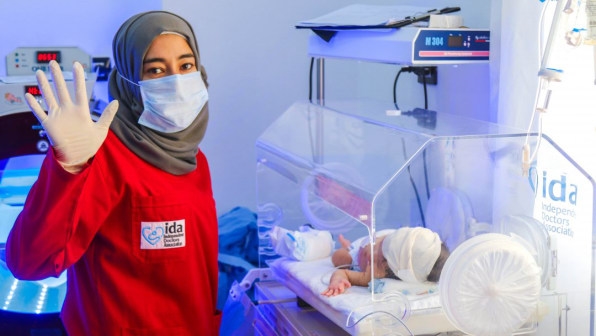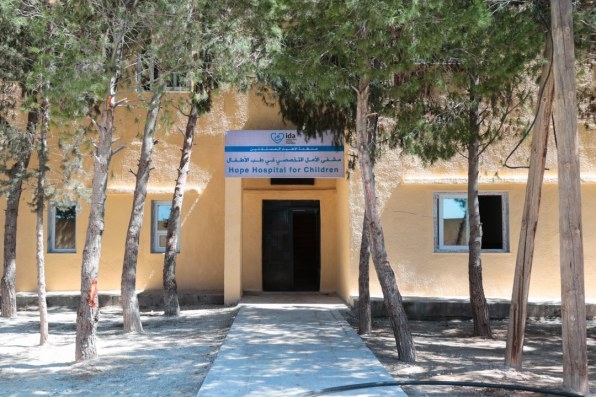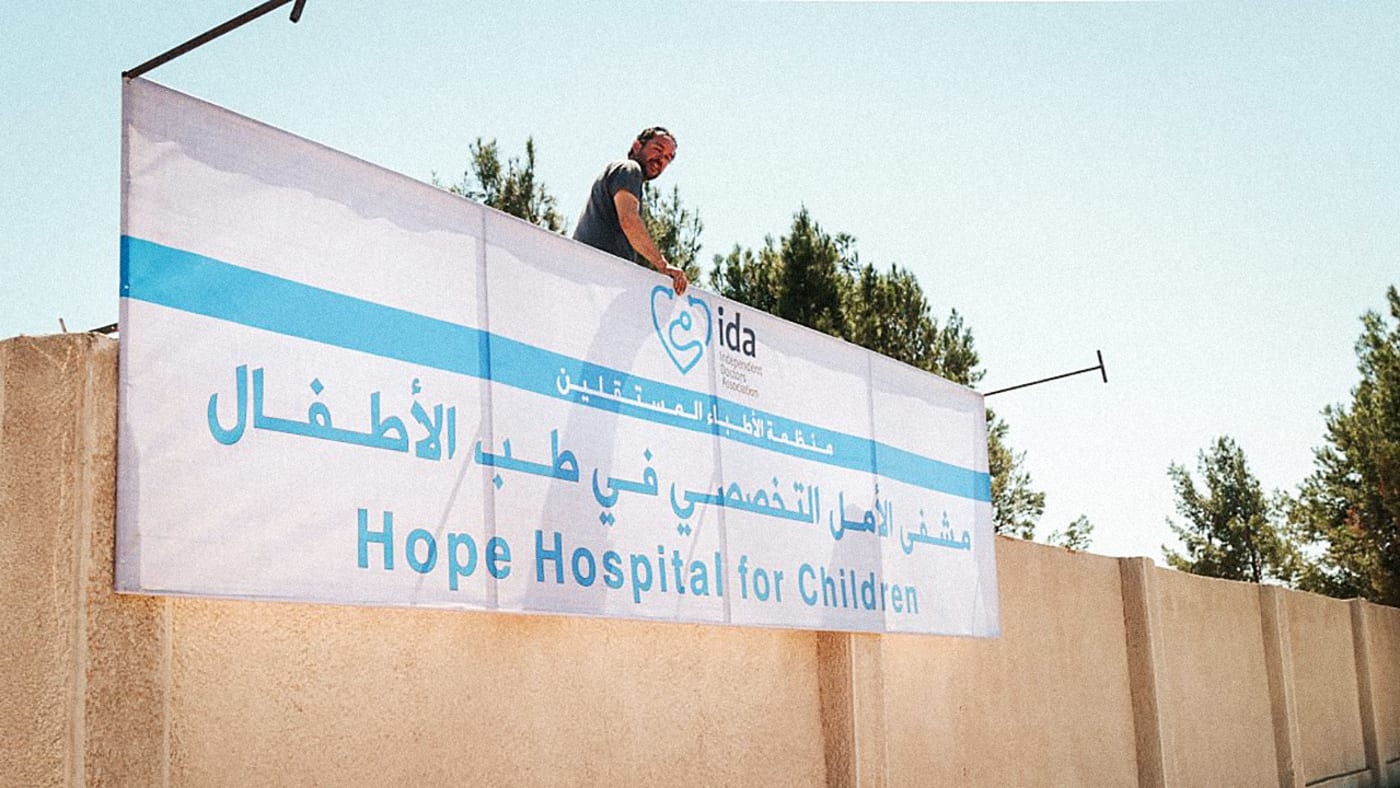This New Platform Lets You Donate Directly To Humanitarian Projects
Rola Hallam was practicing as a doctor in the United Kingdom when war broke out in her home country of Syria in 2011. “I did the only thing I knew I could do and got involved in the humanitarian response, delivering medical aid,” she tells Fast Company.
Hallam, worked with several Syrian-based organizations including Hand-in-Hand for Syria, a charity providing on-the-ground medical aid. Over the course of four years, she volunteered, helping to set up six hospitals. Her experience on the ground in Syria inspired her to launch CanDo, platform to directly fund the kind of work she and her fellow volunteers were carrying out. She is one of this year’s TED Fellows.

Throughout her time in Syria, Hallam “began to realize the humanitarian aid system is fundamentally flawed,” she says. The groups she volunteered with comprised mostly Syrians–nurses, doctors, and general aid workers. While these Syrian NGOs and aid workers were delivering around 75% of the humanitarian response in the country, they were receiving less than 1% of direct funding. “This is not just the case in Syria, but in most of the crises in the world,” Hallam says.
In 2014, for instance, over $2.1 billion in relief money flowed into Syria. The vast majority of it went to United Nations organizations or international nonprofits. Those large groups would contract with the smaller Syrian NGOs, like the ones Hallam was working with, to carry out relief projects, but funds often did not reach the aid workers on the ground.
To Hallam, that was an issue. The on-the-ground organizations in Syria were most effective at delivering aid because knew the communities they were serving. They knew where to go for supplies, which leaders among the community to tap for organizing, and the best routes to travel in between sites. They had the potential to work effectively and with a sensitivity to the cultural context and the circumstances in which they found themselves.
What they lacked was funding. In 2016, Hallam founded CanDo to directly fund local humanitarian groups carrying out aid work in their own communities. CanDo functions like a crowdfunding platform for local humanitarian aid campaigns, specifically those providing health care services, and also provides capacity-building support to the campaigns it partners with. “It’s like a startup accelerator for humanitarian organizations,” Hallam says.
CanDo launched its first campaign after bombs destroyed five hospitals, including a children’s facility, in Aleppo. The Syrian organization Independent Doctors Association wanted to rebuild the children’s hospital, which was the only children’s hospital in eastern rural Aleppo, and served around 170,000 young people. But the organization lacked adequate funds. CanDo set up a crowdfunding campaign to establish a “People’s Convoy” that would transmit not just funding, but building and medical supplies from the UK to Syria so IDA could begin the rebuild. Around 5,000 individual donors came up with over $250,000, and the rebuilt hospital opened in April 2017.

The People’s Convoy, to Hallam, proved CanDo’s concept. “It provides people around the world to support directly into the heart of a crisis, and know exactly where their money is going,” Hallam says. Just as people fund a project on Kickstarter in the anticipation that it will produce a tangible result, so too can people who donate through CanDo see the end result of their funding.
Since the People’s Convoy, CanDo has partnered with four other NGOs. Insan provides psychological support to people in crisis zones, Hurras delivers education and social support for children and advocates for children’s rights, Bihar couples emergency relief services with long-term sustainable building and development projects, and Ghiras Al Nahda focuses on helping people access education and economic support. Hallam was particularly excited about Ghiras Al Nahda’s campaign, which was fully funded last year and distributed mushroom-growing kits to 160 families who were struggling to feed themselves. Because mushrooms contain the most protein of any vegetable, they’re often known as “the poor-man’s meat,” and they’re simple, quick, and low-maintenance to grow–essentially ideal for crisis conditions.
While CanDo has only existed for a little over 18 months, Hallam is optimistic that it will help to reconfigure the way humanitarian aid is funded and carried out by focusing on direct aid to on-the-ground workers. She’s hoping to use her experience as a TED Fellow to connect with people working in other crisis zones around the world to grow CanDo’s impact.
“We’re starting in the Syria context but we aim to be a global platform, supporting local humanitarians across the different crises of the world,” Hallam says.
(16)



